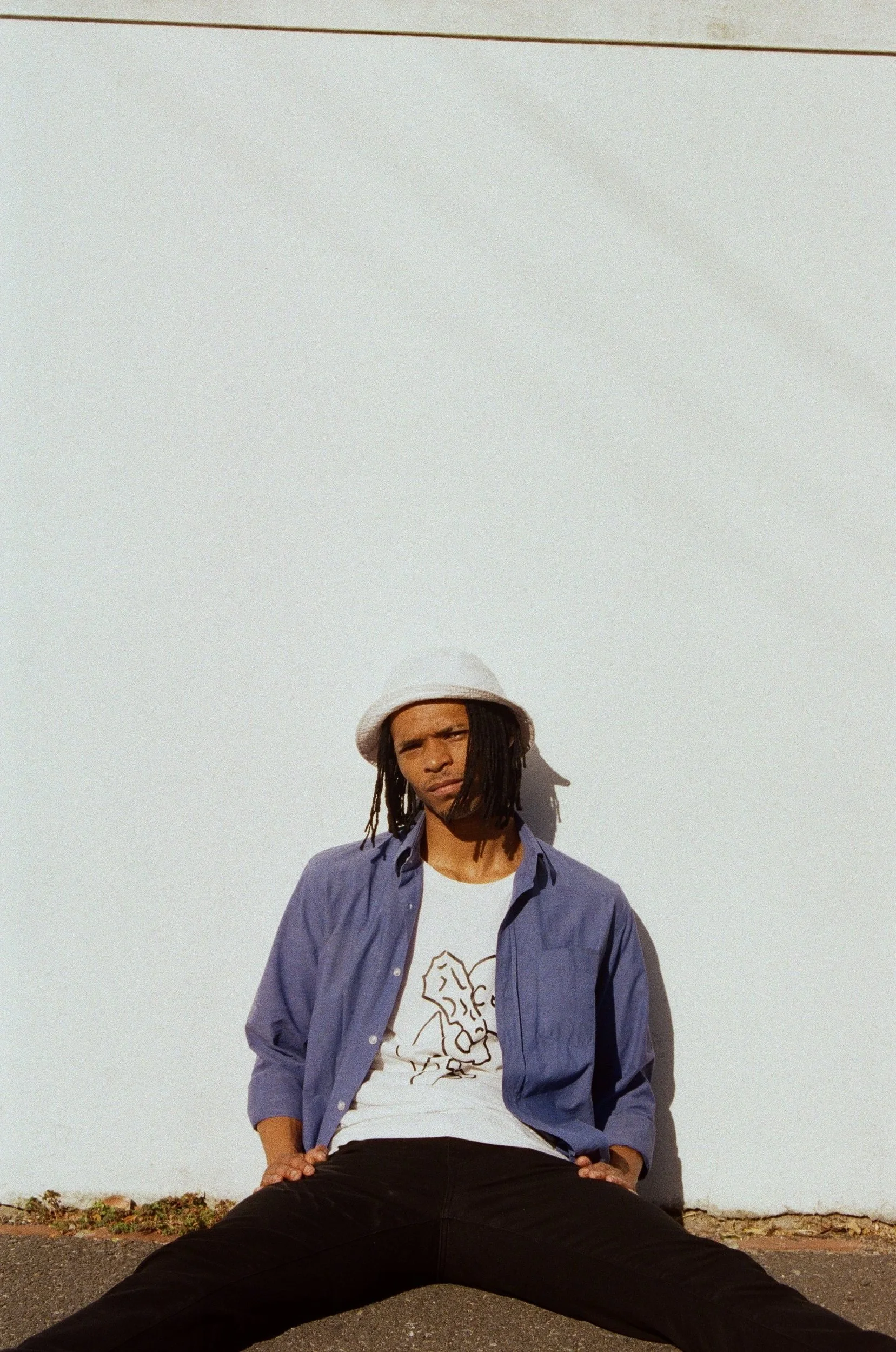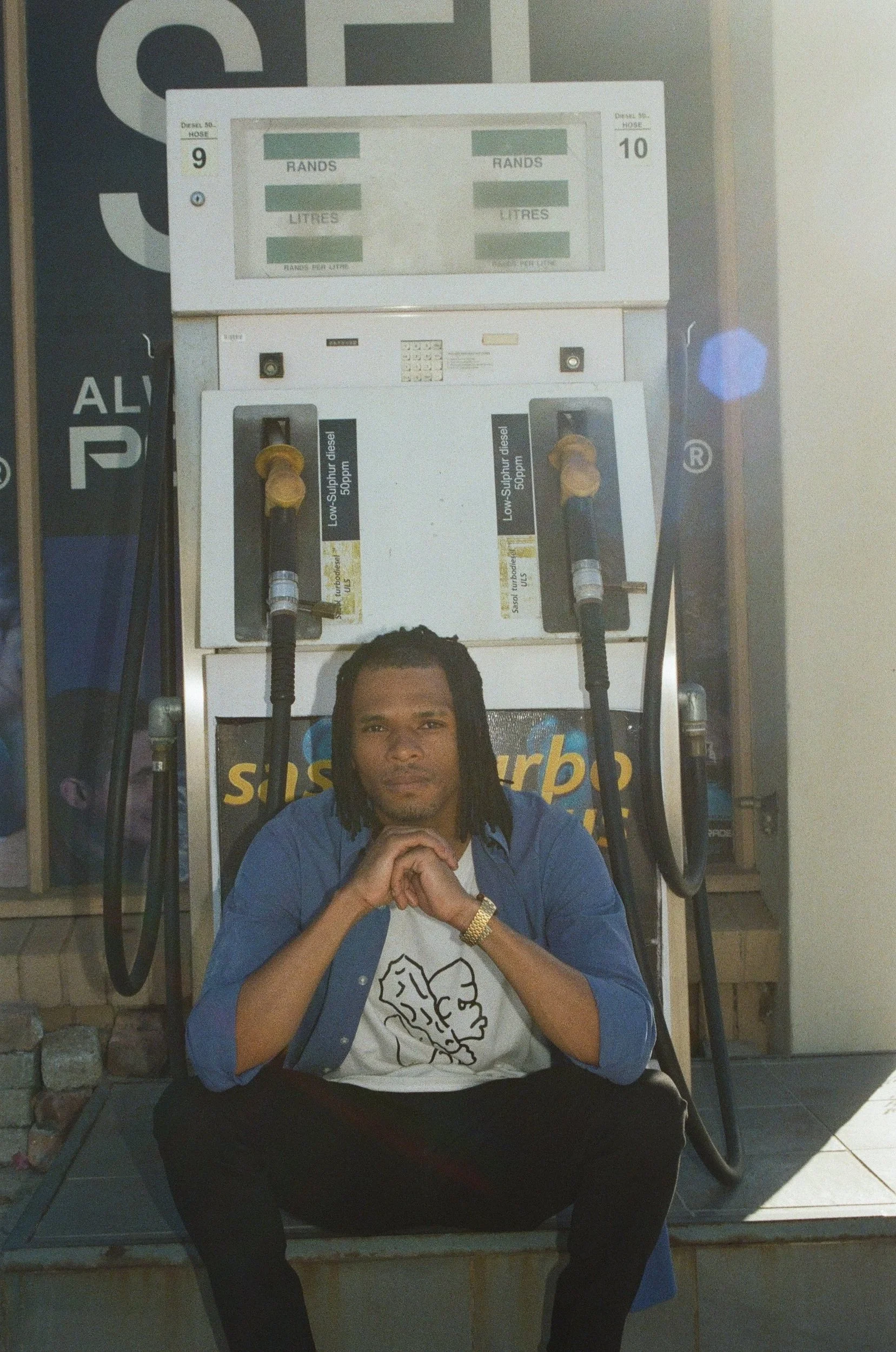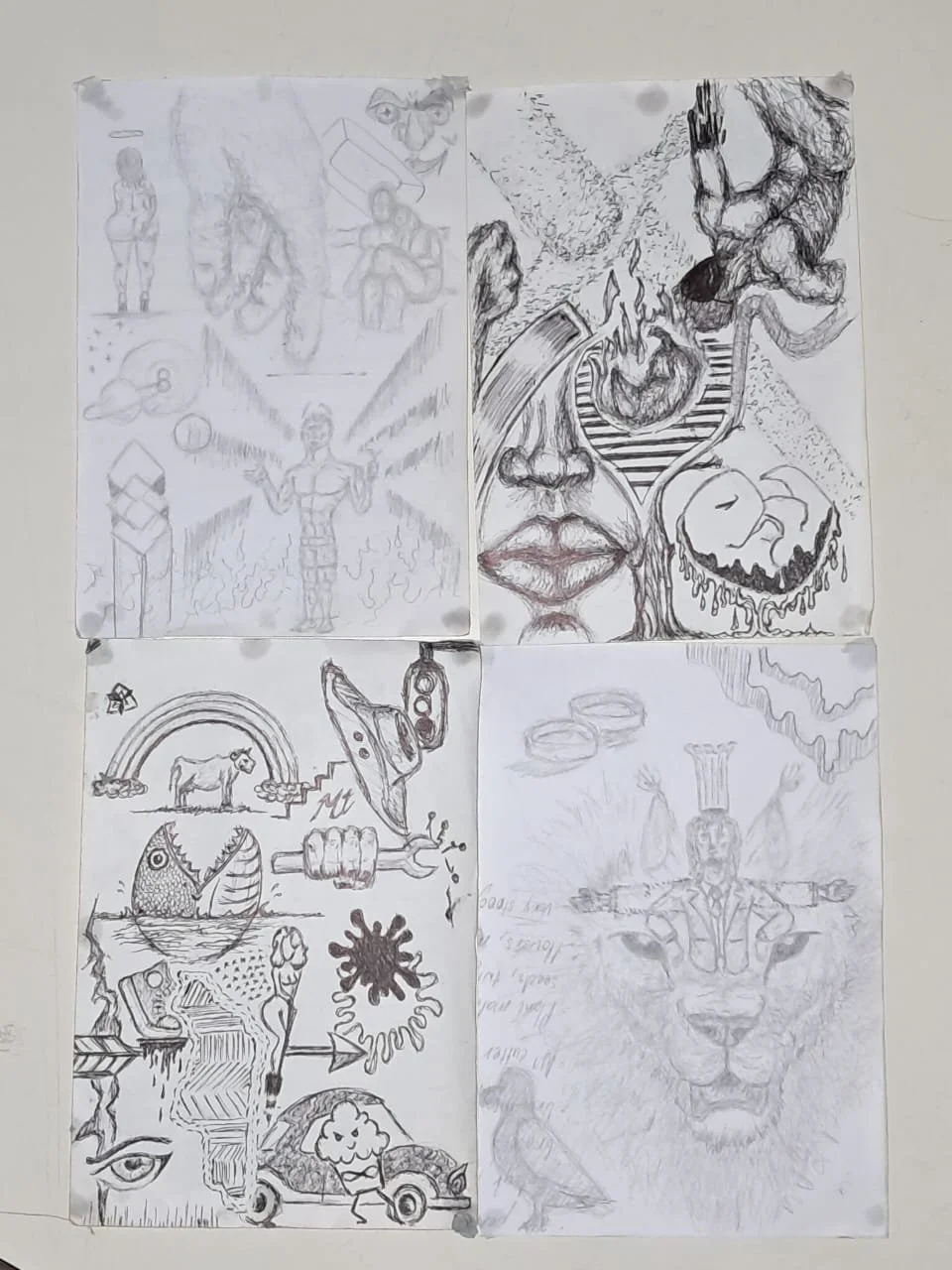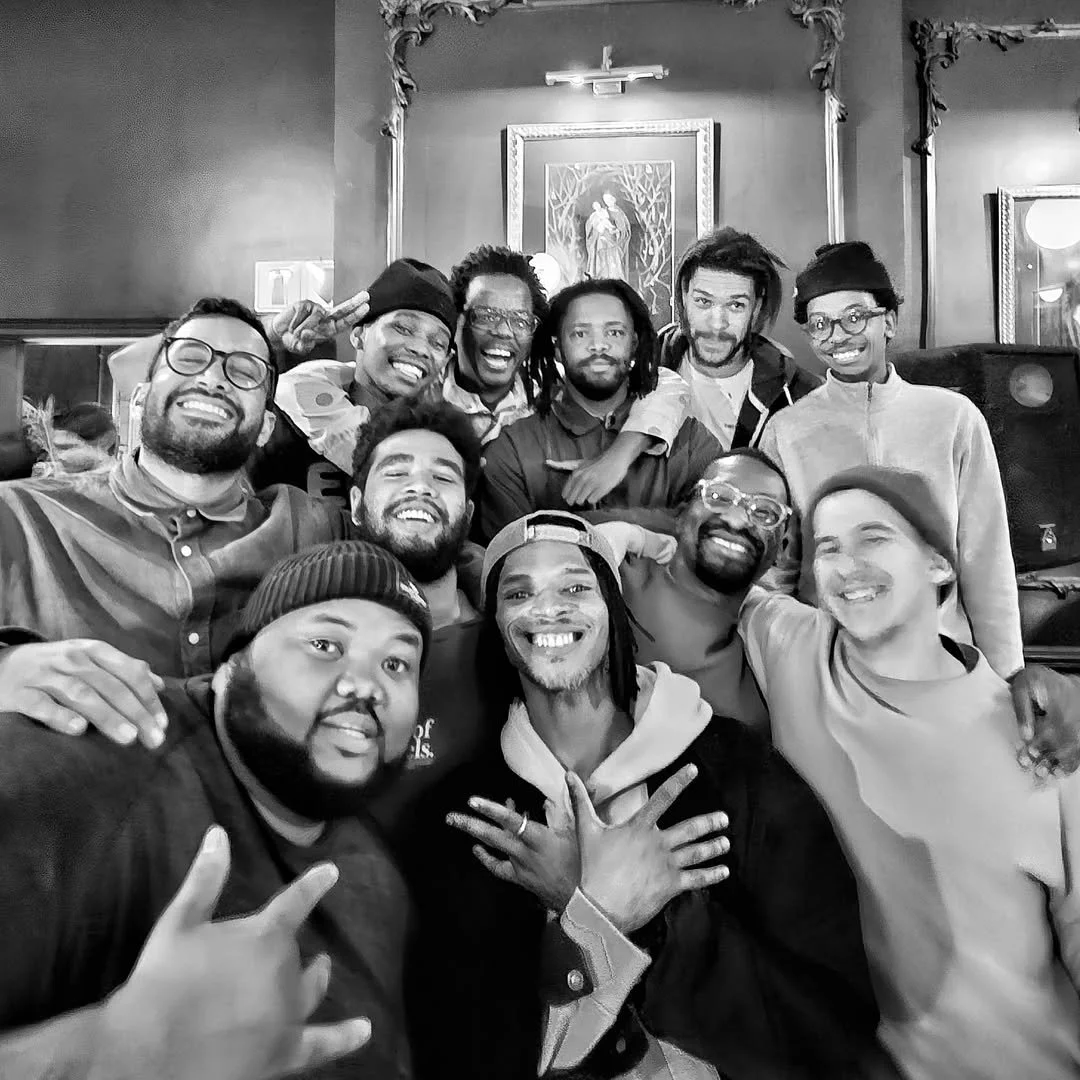From Class Clown To Stand-Up Comedian - A Luzuko Botha Special
Images Shot By @vuyopolson / Instagram
Over the years, I’ve come across the funniest bunch of lads who always had me in stitches from all the laughter I had to endure over casual conversations. Meeting people with this sort of trait always had me questioning if they’d considered testing out their abilities in the comedic scene.
To my surprise, they mostly declined the chance to venture into that industry, always claiming they never seemed to have the courage to perform in front of a demanding crowd. This makes complete sense. I’ve seen comics shake the room with their performances. However, I’ve also witnessed some of the toughest crowds drain the life out of the performer. It's not fun to watch at all.
I was fortunate enough to encounter Luzuko Botha performing at a comedy show at a bar on Kloof Street. After observing his brilliant comedic set, Jeriah and I had a blast, and we spent the rest of the night getting to know Zuko better (while also meeting the rest of the comedians). Fun fact: Zuko was one of the first to witness the birth of VERVE when Jeriah and I would spend most of our evenings cooking up the concept of the magazine at that particular bar.
Fast forward a couple of months, I decided it was time I had a proper sit-down with Zuko and had a proper discussion about his early childhood, his passion for comedy, and his personal experience of navigating the Cape Town comedy environment.
Zuko, could you tell us a little more about your upbringing into this world?
“Zuko is named Luzuko Paul Botha, born and raised in Cape Town in the year ‘96. Born through a Coloured dad and a Xhosa mom. Kind of crazy right?”
“I grew up in a Township called Nyanga. That’s where I spent my early childhood years. Before that, we used to move around and my mom was a domestic worker in Kenilworth at the time. From there, my grandmother left because she had a calling to be a traditional healer and that’s when my mom decided to leave that area and moved on to Nyanga.”
“Honestly, I believe that the whole thing around me was the Township. That’s what I grew up seeing. The moment I left the Township is when I believe my horizon was broadened. That’s when I realized I was quite different from everyone around me. I mean I always knew I was different; I was always the lightest-skinned person among my Xhosa homies. It was never a big deal though.”
“It was only when I started going outside of the Township, like going to school that I realized there was actually a difference there. It’s like crossing from Mannenberg to Gugz (Gugulethu). You really see the different vibes from the two areas.”
“But from Nyanga, we moved to Mowbray. Making friends there is when I got to see a side of me that was a lot more outgoing and talkative. I could make friends really easily. But that’s also where I realised being talkative was really helpful for me. I didn’t actually know where it was going to lead me to.”
“And then from Mowbray, we moved to Maitland, which is a very coloured-dominated area. I remember people used to get my name wrong and it was a big issue for me. They’d either spell it “Lusuku” or whatever and they’d always piss me off! That’s when I’d just use my second name, Paul, which is actually my first name.”
“So, in Maitland, it was Paul, and I was treated differently. At that point, I really learned that people can be treated differently in society, being determined by their background and what their personality says about them.”
You’ve been all over and it makes sense how those different environments shaped the person you are today. How did your earlier years groom you into taking the path as a comic?
“I went to a high school called Vista Nova High, which is a special needs school. I was diagnosed really early in my schooling years. I remember they noticed I wasn’t ever finishing my question papers. That’s because I felt I never had enough time.”
“It goes back to when I was a kid. I remember struggling with reading, especially because English wasn’t my first language, so I’d let the images in front of me tell the story. I guess that’s why they never caught on until I got older, and the pictures started vanishing. That’s when I really struggled.”
“But in that school is where comedy really got me. To cope with that whole transition of actually accepting that I was Dyslexic and ADHD, I felt I needed an outlet. Being funny was my outlet. In school I would take part in stuff like hosting the talent shows or even just being the clown of the class. I think I was always looked at as the entertainment guy in school. People really thought I was funny, and I’d always tell them to shut the fuck about it.”
“I was only really doing that because it was definitely healing me inside. It was only when I was invited to a Soiree, when my English teacher got me doing the Shakespeare Art Festival, is when I developed a knack for being on stage.”
“But I remember this one time I was invited to the soiree, and I hadn’t had anything prepared. I will never forget this day. I remember deciding I’d just go on stage and tell a story. I just told them my story of being a child in Nyanga, especially as a mixed-race child. And I remember just having the whole room in laughter. I remember them all being in the palm of my hands. This was that feeling Eddie Murphy and all the greats were talking about.”
“That was the moment I knew could not turn back. That was my calling. It’s that thing of ‘now that you know, you cannot unknow’. Since then, I continued dabbling in it, but always in my close circle. But it was the 28th of December that year when I decided to go out to a place that had real comedians.”
“It was at Saggy Stone, and it was Jam Jam who gave me my first break. I remember talking to him and telling him I’d really like to take a shot at this. He was super cool with it, and he told me to come the next week and to bring my friends and see what happens.”
“And that’s how this whole journey all started. Ever since then, I’m now a crackhead. I want to be a part of everything comedy-related. Whether it’s the stage setup or the lighting, I don’t care. I just feel the need to immerse myself in all of it.”
“And it’s only my first year in, so there’s so much more for me to offer.”
Now being fully immersed in the Cape Town Comedy scene, what’s that been like for you?
“It’s only been my first year in, but I’ve met cats who have been doing this for years. I’m meeting players like Riaad Moosa. And going around Cape Town and doing comedy in Cape Town has shown me a side of the city that I never knew of.”
“And you see so many places offering shows every night all over the city. I think it’s about keeping your ear to the ground in this city about what’s happening next. I remember my first time going to Vortex, which is a gender-neutral spot, and I remember realizing how different of a spot it was. It was actually the first time I felt I had to watch what to stay in my set.”
“But besides that, the journey itself has been amazing. I felt I had to hold it with both hands, enjoy the moment, and keep it going as long as possible.”
You’re still fairly fresh in the scene. From the moment you started up to now, do you feel like your craft has evolved over time?
“I’m so grateful for technology because I would not know. Although I feel the growth and transition, I couldn’t be too sure. But now because I have tapes of my shows I can tell. Like yoh bro looking back at them, I used to suck!”
“I’m clearly much better now. And I can now tweak my jokes here and there.”
“I think I’m a weird person, but it’s so cool to walk into a community where everyone else is just as weird as you! They truly get it.”
“Being funny is not something you just wake up and decide you’re going to be. It’s a gift. Everyone that I’ve come across in this space was either bullied, too quiet, or something was wrong with them. But we share this common thing through comedy. It comes from a place where it’s not fun, but we make fun out of it.”
It’s my first time getting a view into the world of a comic. Can you tell me your process behind crafting your material?
“It’s crazy because a lot of people ask me what’s the writing process behind my jokes. I don’t even write them, bro, I draw.”
“Obviously, I am trying to learn more about joke writing, knowing how to structure a joke and punchlines. Talent is not enough. Being funny is not enough. You’ve got to have something behind that gift, and you’ve got to work hard at it.”
“So now I’m trying to build on my craft of joke writing. However, my process is to draw out my jokes. My drawings always begin abstract, but from there they’ll grow to describe my experiences. From those experiences, jokes come about.”
“Most of my jokes come from those experiences. I remember one time I almost drowned in school during a relay, and I have a drawing of that too. My friends would always clown me about it. I even remember days when it would rain, and my mates would jokingly pretend to worry over me in case I’d drown in a puddle. Those are moments I love joking about.”
One thing I admire and respect about what you guys do is tackling a stage in front of an audience. Do you still get nervous before your shows?
“Of course. It’s actually crazy because the people I look up to also get nervous! It’s something I believe will never go away. Unless you don’t care.”
“If you care about your performance, and if you care about the people you want to entertain, you’re always going to have those nerves. I remember even doing push-ups before a show at The Moveable Feast just to calm me down.”
“And it’s funny because once you go off the stage, you always question what you were even nervous about. I guess it’s that fear of not wanting to mess up and bomb in front of a crowd.”
“But I feel like it’s a good thing though. If you’re well trained, well versed, and well prepared, you can really channel that energy through your performance. That’s how guys shut down the room. And you wouldn’t even guess that they were shitting themselves in the green room just before their set.”
I hate to ask you this, but I really have to. Have you ever had a stinker of a performance and what was that like?
“Haha! Of course I have. I’ve been in stinkers, and I’ve witnessed many stinkers.”
“But I feel like those are the shows that you learn from the most. It sucks at the time, but those moments have so much value. You’ll beat yourself up over it, but you’ll learn.”
“But it’s also why I think winging it can become important as a comedian. You can never prepare for a crowd. If you show up and you don’t know what kind of crowd you’re about to deal with, it becomes a gamble, so you need to know how to take control of a crowd off the top of your head.”
“Some rooms can be hard. Some audience members will look at you like a weirdo and of course, you get those who end up heckling you. But that comes with the journey. It comes with building your character. It comes with refining and forging your passion.”
“And while there are stinkers, there’s also the amazing nights. Those nights are always validating. It’s always nice to know that you can kill a room. It’s nice to know you’re capable of pulling laughter out of an audience.”
During our interview, you’ve mentioned some of the bigger names in the world of comedy. What’s your honest take on the scene in Cape Town and do you feel like the bigger guys are helping bring in the newer guys in the scene?
“I can’t lie. They’ve been so nurturing. It’s crazy bro.”
“Although, because it is like any other competitive sport, there’s always a sense of competitiveness. Which is important because we all want to get better and that feeling helps us get better. We all want to be the best.”
“Nobody wants to be mediocre. Especially when you finish a mediocre set and the guy after you kills the crowd, it’s a tough feeling. Or even worse is when someone goes before you and kills the room and now you have to go next and compete with that!”
“But one thing I look up to about the guys that have been in the game is they always tell us that as long as we keep the drive we have right now, we’re eventually going to get there. They’ve told me that there will be nights where it’s going to be terrible or there will be nights where you won’t get any stage time.”
“It’s one thing when you see the final product and it’s another when you actually see the process. I’ve seen the big names work on jokes. I’ve seen refining and tweaking their material over time. They allow us to learn from them and help us get better at what we’re doing.”
While still the new kid on the block, Zuko truly has this unique aura about him. The second we randomly spot each other in the streets of Cape Town, my day always gets ten times better from the amount of laughter he pulls out of me.
I urge you to pull through to his “Comedy Nights” show hosted every Tuesday night at Pizzasaurus, curated by both he and the hilarious Sipho Luther.
The comedy scene is a booming industry in Cape Town, and at VERVE we see the new cats on the block, and we cannot wait to witness how they continue to shake up the whole city with their movement.










